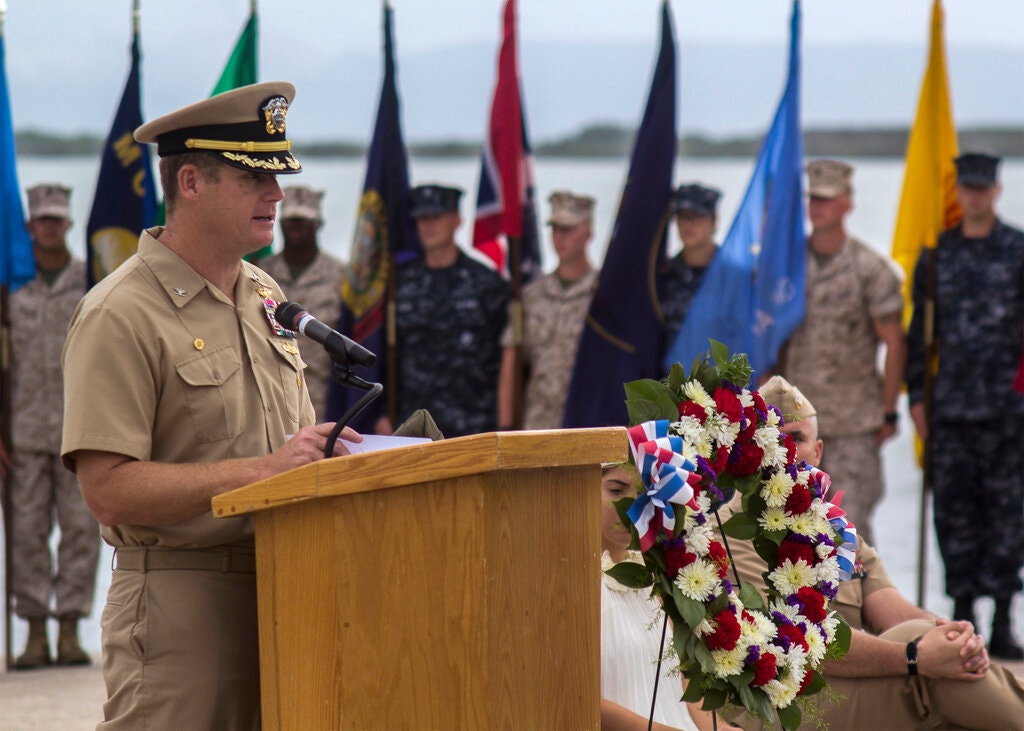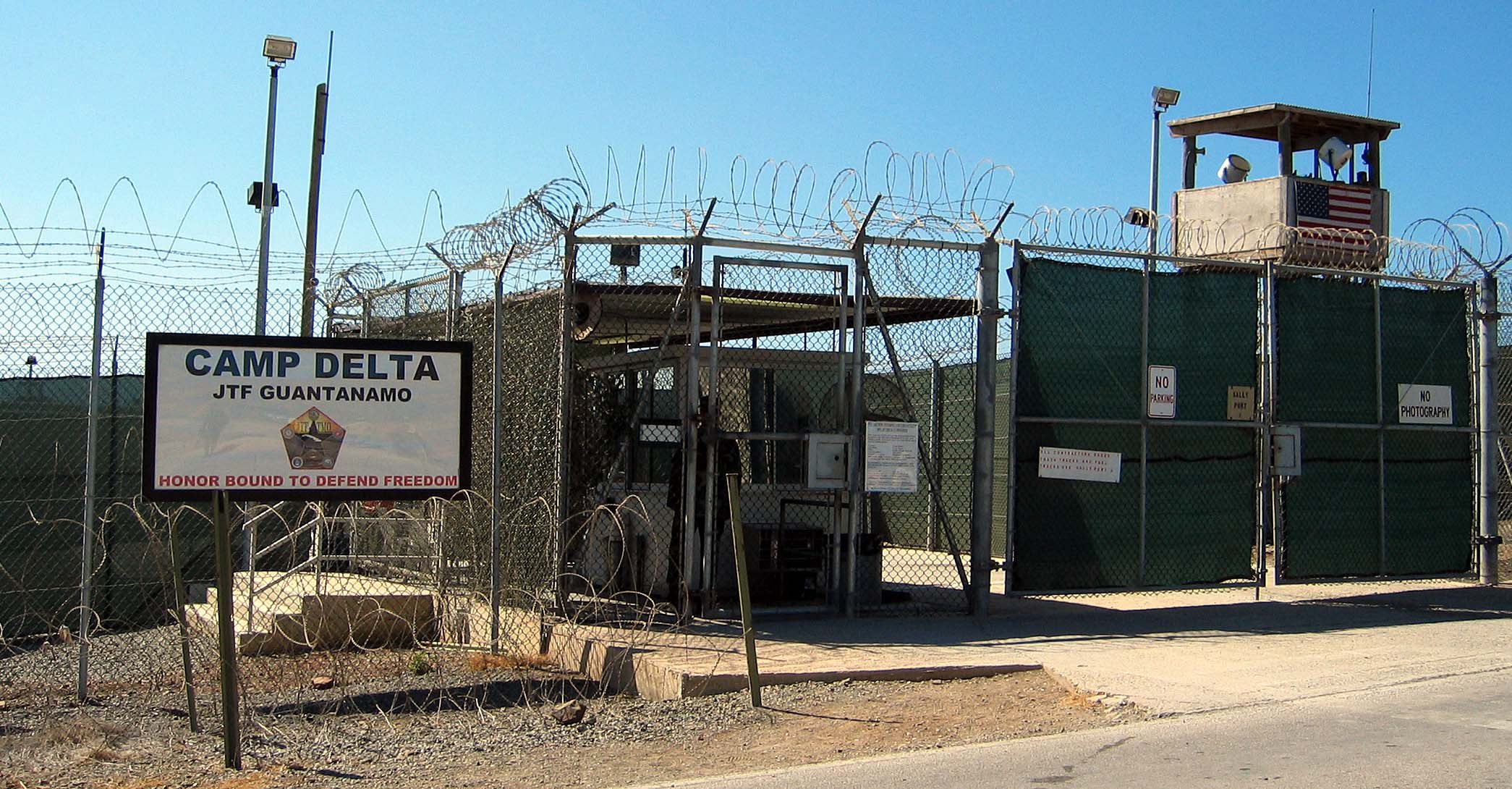
WASHINGTON — A federal judge sentenced a former commander of the Navy base at Guantánamo Bay, Cuba, on Thursday to two years in prison for trying to cover up a drunken fight with a commissary worker who was later found dead in the bay.
Testimony at the trial showed that the fight inside the official residence of the now retired Navy captain, John R. Nettleton, 54, followed a night of drinking during a celebration at the base's private officer's club. At the party, the man who died, Christopher Tur, 42, loudly accused Captain Nettleton of having an affair with his wife.
U.S. District Judge Timothy J. Corrigan announced the sentence, on six criminal counts including obstruction of justice, after a nearly daylong hearing in Jacksonville, Fla. During the hearing, Mr. Tur's mother and siblings emotionally urged a severe sentence while three former military officers described Captain Nettleton as a veteran combat helicopter pilot who had led a life of integrity.
"Any period of incarceration is anything but a slap on the wrist," the judge said in handing down the sentence through a mask in the largest hearing of the pandemic at the courthouse, with some people participating or listening by telephone and others watching on a video feed. "Captain Nettleton is being held to account, and I think it is appropriate and I hope it can be seen in that light."
Federal prosecutors had sought 37 to 46 months in prison, citing sentencing guidelines. The defense lawyers had urged no time, or home confinement.
Mr. Tur was found dead and floating in Guantánamo Bay on Jan. 11, 2015, two days after the fight and after Captain Nettleton ordered the military and other residents to mount an extensive search for him. Mr. Tur had four broken ribs, a bruised forehead and potentially lethal amounts of Prozac and alcohol in his system. A medical examiner ruled his death was caused by drowning, probably accidental.
Before announcing the sentence, the judge said: "This is not a homicide case. This is not a murder case. It's not a case in which Captain Nettleton stands accused or convicted of causing the death of Mr. Tur."
Rather, a civilian jury found that during the search, Captain Nettleton did not report that he had fought with Mr. Tur, denied to another officer that Mr. Tur had come to his house and lied about the affair he had with Lara Tur, who ran the base's social service department.
Mr. Tur's family members asked the judge to exceed the sentencing guidelines and send a message of accountability to other military officers about the costs of getting drunk, infidelity and lying. Some argued that had Captain Nettleton called the base police after the fight, Mr. Tur would be alive.
"What message will it send to other members of the military if the sentencing is guidelines?" said Ann Tur, his mother. "If you're not highly ranked, you are not entitled to justice? Senior officers in the Navy, the Department of Justice will watch this closely. A good man, my baby boy, is dead."
Before sentencing, Captain Nettleton told the judge that he was "humbled" by the support of his friends and family, including his former wife, and that "I honestly don't know what I would decide" were he in the judge's position.
"Command is an honor and a responsibility," he said. "I failed, and I know that I am accountable for my actions."
Captain Nettleton was convicted on Jan. 17 after a weeklong trial that cast a rare spotlight on the small-town nature of the base of 6,000 people.
A retired Army colonel who served as the warden of Guantánamo prison, John Bogdan, described Captain Nettleton as a bridge builder who fostered a climate of respect and cooperation between base residents and the soldiers who work at the prison on short tours after years of rivalries and acrimony.
"It took a lot of effort and took a lot of personal courage on John's part to make the case that the Navy was there to support the Army," said Colonel Bogdan, adding that Captain Nettleton sent the message that "to have a contrary opinion to that was mission ineffective."
On a personal note, to illustrate the captain's integrity, Colonel Bogdan recalled that one night at Guantánamo the police arrested both their sons, both 16, and Captain Nettleton recused himself from the case and had his second in command, the base executive officer, conduct an investigation.
Retired Rear Adm. Greg Nosal, a former fighter pilot who now works at Lockheed Martin and who was Captain Nettleton's commander aboard the U.S.S. Enterprise in the Persian Gulf in 2005, told the judge that the captain was a man of "integrity, character, charisma" who cared for his people and stood up for "what's right."
A lawyer for Captain Nettleton, Colby Vokey, asked whether his client could surrender to serve his sentence after Christmas. The judge, who had earlier said that "the risk of Captain Nettleton committing a crime in the future is as close to zero as any case I've seen," replied that with the Bureau of Prisons coping with the pandemic, the U.S. Marshals Service would notify them when the sentence would start.




